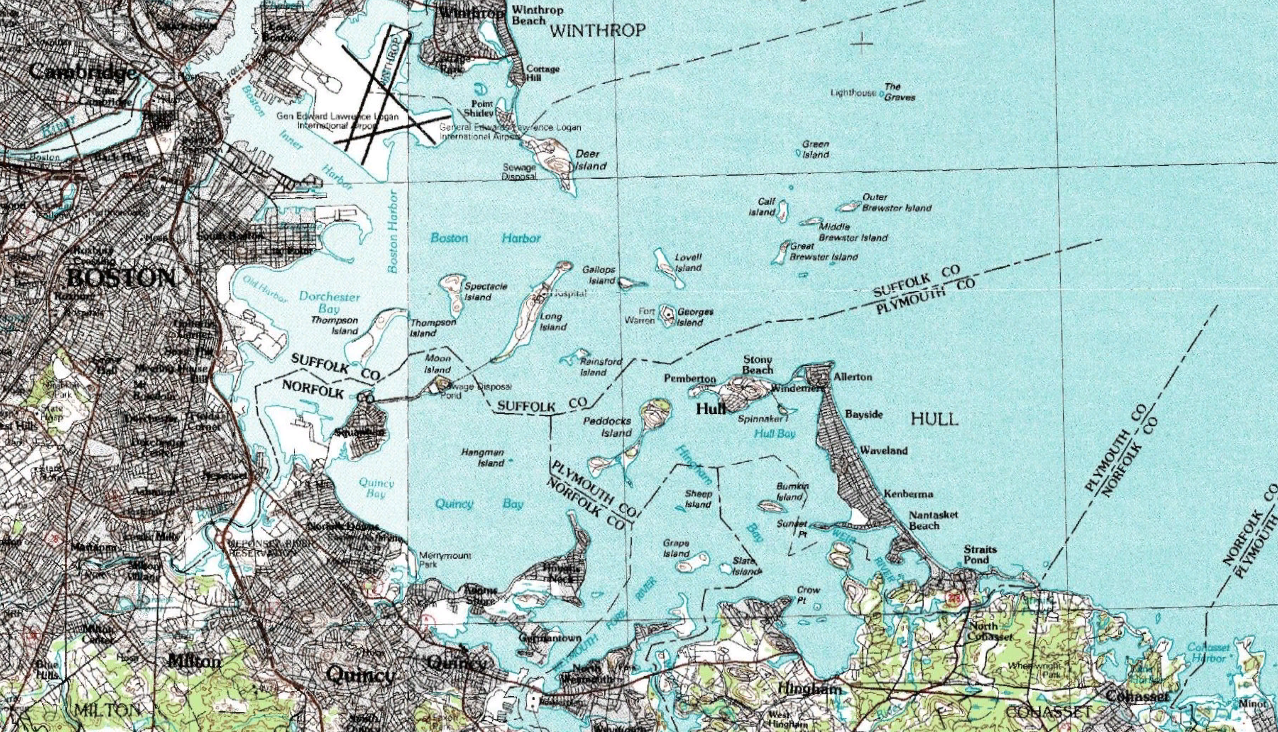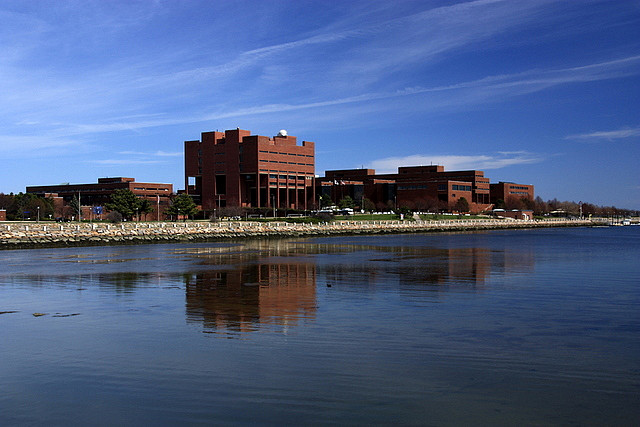
Coastal communities around the world are preparing for rising seas. Boston, a port city built on landfill, with a harbor renowned for freedom and liberty, is fighting a war. Last century, the Atlantic shore of Boston saw a persistent nine inch rise, with predictions that sea-rise may triple by 2030. By 2070? Look for three more feet of water. Boston ranks as the world’s eighth most vulnerable city, according to a study by the Organization for Economic Cooperation and Development of more than 100 coastal cities.

According to the University of Massachusetts Boston, and the Woods Hole Group, options to prevent the damage of flooding include spending $11.8 billion for a macro harbor barrier such as that built in the Netherlands. New York City is also studying the potential for a barrier that might cost $119 billion. In the short-term, Boston will budget $30 million per year to combat sea rise, with new ideas including:
TRANSPORT: New watertight doors on the rail tunnel near Fenway Park; redoing blockage of underground rail ventilation systems near Aquarium MBTA station.
PARKS: Protective berm of 10 feet along shore of Joe Moakley Park, a 60-acre oasis in South Boston near the beach. The park itself will be raised, and chambers installed beneath playing fields that will be capable of holding 5 million cubic feet of storm surge water. Other parks undergoing similar change: Ryan in Charleston on the Mystic River.
BUILDINGS: New condo high-rise housing on Boston Harbor comes with an “aqua fence” or portable flood barrier. General Electric (GE) leased two historic brick buildings, elevating the first floors and moving all electrical equipment to higher levels than the traditional basement.
MUSEUMS AND CULTURAL ICONS: Boston’s Children’s Museum redesigned a lawn into a hill, with a playground surrounded by dense plantings.
FOOD SUPPLY: Most large supermarkets build loading docks below ground; if food supply is to remain available when a city suffers flooding, relocating loading docks could improve public health.
MUNICIPAL PERMITS AND REGULATIONS: New buildings must meet increasing strict environmental standards. A similar approach governs new construction in Paris, France.
INVITING INNOVATIVE IDEAS: Boston’s Museum of Science, with the support of General Motors and Greentown Labs, is holding a $3,000 competition for ideas in transportation to help achieve carbon neutrality.

Boston’s Museum of Science is one of many educational design competitions; students worldwide may soon deposit capstones, and theses in an Idea Bank, and join Climate Conservation Corps service teams. Is your home community or school in a location vulnerable to sea-rise? What are you doing? The best ideas are those that are shared.
Mufson, Steven. “Boston harbor brings ashore a new enemy: Rising Seas: Facing climate change, Boston must gird itself for an era of rising water – or be inundated.” 18 February 2020. The Washington Post. https://www.washingtonpost.com/climate-solutions/2020/02/19/boston-prepares-rising-seas-climate-change/.
Museum of Science, Boston. “Go Carbon Neutral: A Transportation Challenge.” https://www.mos.org/go-carbon-neutral/
Organization for Economic Cooperation and Development (OECD). “Future Flood Losses in Major Coastal Cities.” 2013. http://www.oecd.org/newsroom/future-flood-losses-in-major-coastal-cities.htm
OECD. “Ranking Port Cities with High Exposure and Vulnerability to Climate Extremes.” https://www.oecd-ilibrary.org/environment/ranking-port-cities-with-high-exposure-and-vulnerability-to-climate-extremes_011766488208
Spang, Edward. “Food-Energy-Water Nexus.” Center for Water-Energy Efficiency. 4 May 2017. https://ie.ucdavis.edu/wp-content/uploads/sites/38/2017/05/spang-o3MAY17.pdf.
Spang, Edward., and William Moomaw, Kelly Gallagher, Paul Kirshen, and David Marks. “Multiple metrics for quantifying the intensity of water consumption of energy production.” Environmental Research Letters, vol. 9 (10), 8 October 2018.
Appreciation to Charles E. Litwin, David H. Marks, and Cherie E. Potts for research suggestions.
Building the World Blog by Kathleen Lusk Brooke and Zoe G. Quinn is licensed under a Creative Commons Attribution-NonCommercial-NoDerivs 3.0 Unpo
